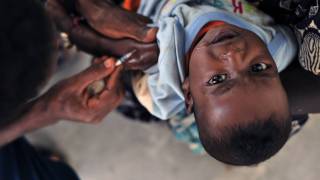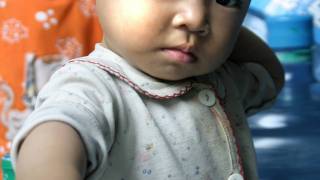3 MMR Shots Now Recommended for Mumps Outbreaks

The current Centers for Disease Control and Prevention (CDC) committee’s recommendation for 2 doses of MMR vaccine appears to be sufficient for mumps control in the general population, during normal situations.
But, new research indicates 2 shots of vaccine are not sufficient for preventing mumps outbreaks in prolonged, close-contact settings.
Even where most people already have 2 doses of the MMR vaccine, says the CDC.
These studies report the second MMR vaccine-induced immunity diminishes with time.
Considering the evidence, persons who are at increased risk for acquiring mumps were identified as a public health priority, and should receive a third dose of mumps virus–containing vaccine, said the CDC committee.
A third dose of MMR vaccine has at least a short-term benefit for persons in outbreak settings.
The CDC says the benefit of added protection through the administration of a third dose of MMR vaccine outweighs the low risk for vaccine-associated adverse events.
Regarding implementation, a CDC recommendation would allow health departments to make more rapid decisions regarding the use of a third dose of MMR vaccine and increase access to vaccine for persons identified by public health authorities as being at increased risk for mumps because of an outbreak.
The MMRV vaccine, which is the other vaccine licensed in the United States for the prevention of mumps, may also be used when a third dose mumps vaccination is indicated among children aged ≤12 years.
Because of the complexity of mumps outbreaks, including the setting, the group or population affected, and risk factors for transmission, public health authorities are uniquely positioned to advise parents, students, clinicians, and universities regarding when and for which groups a third dose of MMR vaccine is appropriate.
In addition, limited immunologic evidence suggests antibody titers decline within 1 year after the third dose.
As more data on duration of protection after receipt of the third dose become available, evidence for use of a routine third dose will be considered, said the CDC.
Adverse events occurring after administration of any vaccine should be reported to the Vaccine Adverse Event Reporting System.
The CDC Advisory Committee on Immunization Practices (ACIP) member roster for 2017 is available.
The ACIP Mumps Work Group includes Amanda Cohn, Jessica MacNeil, Paul Hunter, Kelly Moore, Cynthia Pellegrini, Jose Romero, ACIP; Carol Baker, Infectious Diseases Society of America; Chas DeBolt, Council of State and Territorial Epidemiologists; Shalini Desai, National Advisory Committee on Immunization (Canada); Susan Even, American College Health Association; Amy Groom, Indian Health Service; Melissa Martinez, American Academy of Family Physicians; Dawn Nolt, Committee on Infectious Diseases, American Academy of Pediatrics; Steven Rubin, Center for Biologics Evaluation and Research, Food and Drug Administration; Jane Zucker, Association of Immunization Managers; Huong McLean, Patricia Quinlisk, Jane Seward (consultants); Stanley Plotkin (expert consultant for scientific discussions); Tracy Ayers, Nakia Clemmons, Carole Hickman, Adria Lee, Mona Marin, Mariel Marlow, Manisha Patel, Paul Rota, Janell Routh, Melinda Wharton, Patricia Wodi, Fangjun Zhou, CDC.
No conflicts of interest were reported.
Our Trust Standards: Medical Advisory Committee
- Recommendation of the Advisory Committee on Immunization Practices for Use of a Third Dose of Mumps Virus–Containing Vaccine in
- Prevention of measles, rubella, congenital rubella syndrome, and mumps, 2013: summary recommendations of the Advisory Committee
- Recent resurgence of mumps in the United States.


























